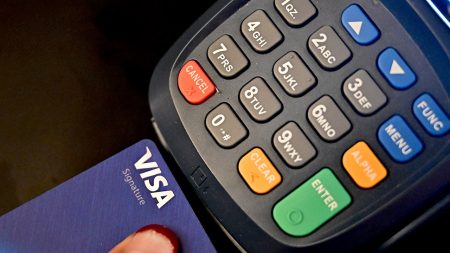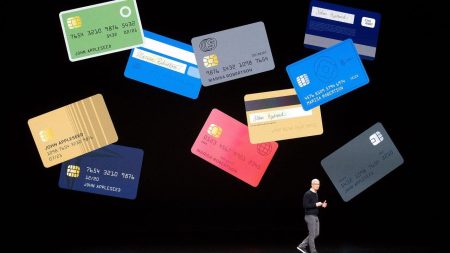The high interest rate environment has done little to dampen the appetite for credit products, a recent TransUnion report said.
The report said that in the first quarter of 2024, when counted together, consumers had more than 543 million bank cards in their wallets, an increase of 20 million year over year and more than 88 million from just three years ago. Not only do more Americans have bank cards, but they are also increasingly using their available credit, with balances growing 2.2% over last year. The average new account credit lines rose 3.8% to $5,628.
Consumers also increasingly accessed cash through unsecured personal loans. Total unsecured personal loan balances grew 9% to $245 billion in the first quarter of 2024.
The growing appetite for borrowing comes even as the Federal Reserve has maintained interest rates at a two-decade high of 5.25% to 5.5%. High interest rates increase the cost of borrowing.
“Consumers’ access to credit has grown significantly in recent years and will provide them with credit to tap into when needed,” Michele Raneri, TransUnion vice president of U.S. research and consulting said. “Many of these consumers are choosing to take advantage of these products that can help them manage their rising monthly household expenses, despite the fact that these products may bring with them interest rates that are higher relative to recent history.
“For these consumers, the short-term pressure of inflation poses a more pressing problem to solve than the potential impact of higher interest rate credit, which includes higher monthly debt service payments,” Raneri continued.
If you are struggling to pay off debt, you could consider using a personal loan to consolidate your payments at a lower interest rate, saving you money each month. You can visit Credible to find your personalized interest rate without affecting your credit score.
BIDEN WANTS TO GIVE HOMEBUYERS $400 PER MONTH: STATE OF THE UNION
Borrowers missing debt payments
The uptick in credit usage has been followed by an increase in credit cards, mortgage and auto loan delinquencies, the report said. Personal loans, however, have fared better because lenders have shifted to lower-risk borrowers.
“We have seen delinquencies tick up in recent quarters, which is certainly something lenders need to follow closely,” Raneri said. “At the same time, the consumer credit market remains resilient given the compounding of relatively high interest rates and persistent inflation. The prevailing hope is that as long as unemployment figures remain relatively low, serious delinquency rates may stabilize.”
Most Americans regret their spending, especially credit card debt, according to the Debt.com survey. Roughly 78% said they had a financial regret, with 21% saying they most lamented “charging up too much credit card debt.” Millennials regret their credit debt the most, and 45% said they feel guilty about “charging too much on their credit cards.”
Moreover, 49% of the respondents said their regrets about credit card debt are “always on their mind.” More than 1 in 4 (26%) of respondents regret running up balances having $15,000 to $30,000 in credit card debt, and 15% owe $30,000 to $50,000.
Personal loans can offer consumers lower-interest options to refinance high-cost credit card debt. If you’re interested in paying off high-interest debt with a personal loan, you could visit the Credible marketplace to learn more about your options and speak with an expert to get your questions answered.
HOMEBUYERS GAINED THOUSANDS OF DOLLARS AS MORTGAGE INTEREST RATES FALL: REDFIN
CFPB rule capping late fees in court
In March, the Consumer Financial Protection Bureau (CFPB) finalized a rule capping credit card late fees to 25% of the required payment and ending the automatic inflation adjustment for these charges.
The move would have reduced late fees from an average of $32 to $8 in most cases, resulting in an average annual savings of $220 for the more than 45 million people charged late fees. The change could have also saved families $10 billion every year.
In May, U.S. District Judge Mark T. Pittman, a federal judge in Texas, granted an injunction sought by the banking industry and other business organizations, stating that the rule violated specific federal statutes. The venue for where the lawsuit will be litigated has been moved out of the Texas court twice to Washington, D.C., where it could be more beneficial for the CFPB to defend the rate cap, according to a recent Reuters report.
One way to reduce your monthly expenses is to pay off high-interest debt. You could consider using a personal loan to help you do so at a lower interest rate, saving you money each month. Credible can help you compare multiple lenders at once and choose the one that’s the best option for you.
HIGH HOMEOWNERS INSURANCE RATES SCARING AWAY FLORIDA HOMEBUYERS, OTHER STATES FACE THE SAME ISSUE
Have a finance-related question, but don’t know who to ask? Email The Credible Money Expert at moneyexpert@credible.com and your question might be answered by Credible in our Money Expert column.
Read the full article here









